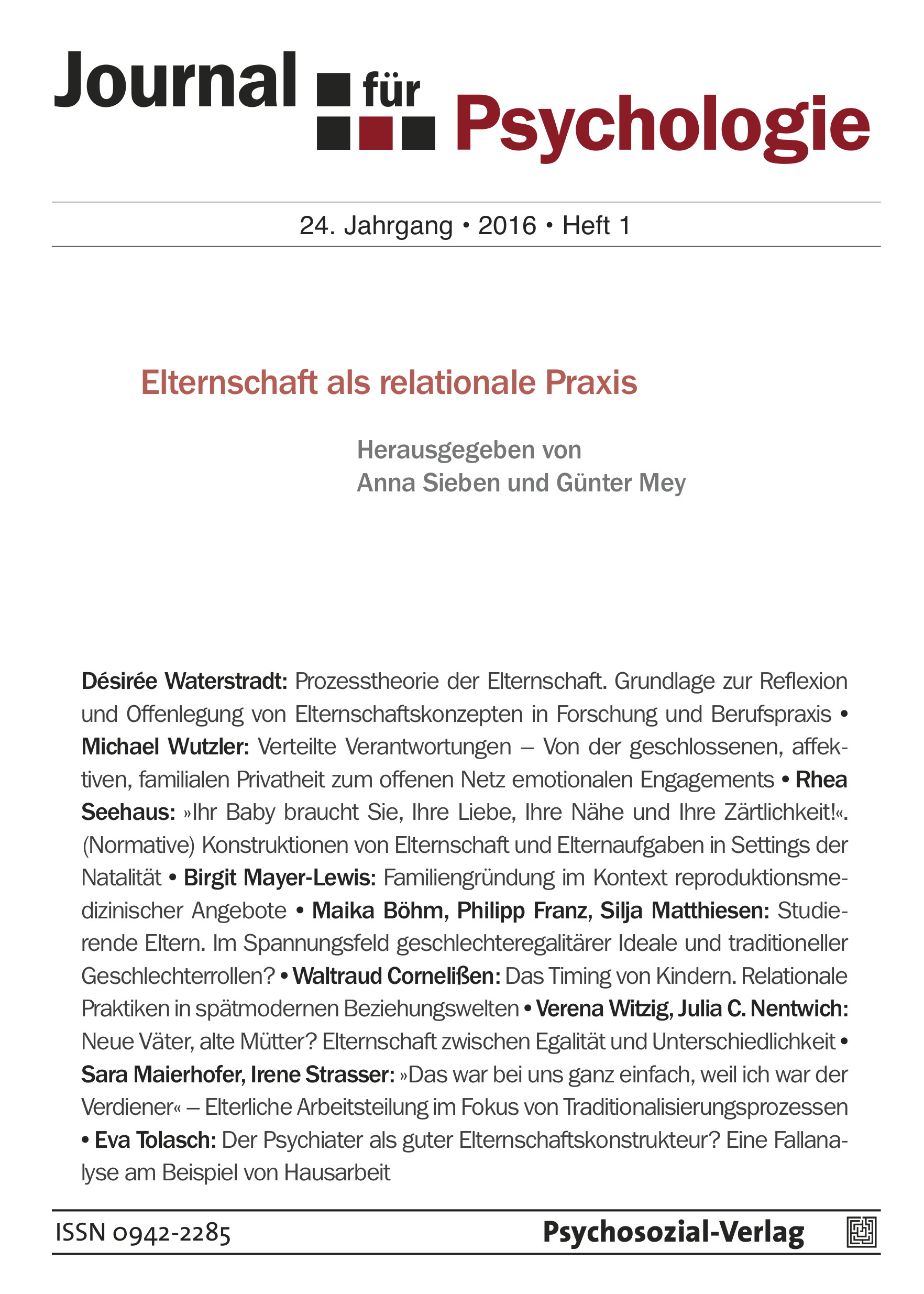Students with children. Caught up in the conflict between gender-egalitarian ideals and traditional gender roles?
Keywords:
parenting arrangement, division of labour within the family, starting a family while studying, gender relations, semi-structured guideline interviews, telephone interviewing, qualitative content analysisAbstract
Over the past decades, there has been an increase in highly educated adults putting off the processes involved in starting a family to a later point in their biography. Family and parenting models have also become increasingly diverse as a result of laws on gender equality as well as a greater number of women participating in the labour market. However, the birth of a first child within a relationship that has up to that point been egalitarian often results in a return to a more traditional division of labour between men and women. In this paper, decision-making processes involved in starting a family while studying are investigated on the basis of guided interviews with 16 female students who already have a child. Additionally, the parenting arrangements of partners in the early years of their child's life are analyzed with regard to the question as to what influence gender-egalitarian ideals and traditional gender roles have on this group of highly educated parents.Downloads
Published
2012-02-22
How to Cite
Böhm, Maika, Philipp Franz, and Silja Matthiesen. 2012. “Students With Children. Caught up in the Conflict Between Gender-Egalitarian Ideals and Traditional Gender Roles?”. Journal für Psychologie 24 (1). https://journal-fuer-psychologie.de/article/view/395.
Issue
Section
Schwerpunkt
License
This license allows private use and unmodified distribution, but prohibits editing and commercial use (further information can be found at: https://creativecommons.org/licenses/by-nc-nd/4.0/).
The terms of the Creative Commons licence only apply to the original material. The reuse of material from other sources (marked with a reference) such as charts, illustrations, photos and text extracts may require further permission for use from the respective copyrights holder.



